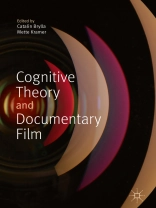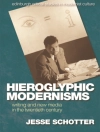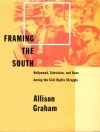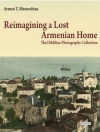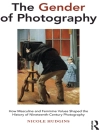This groundbreaking edited collection is the first major study to explore the intersection between cognitive theory and documentary film studies, focusing on a variety of formats, such as first-person, wildlife, animated and slow TV documentary, as well as docudrama and web videos. Documentaries play an increasingly significant role in informing our cognitive and emotional understanding of today’s mass-mediated society, and this collection seeks to illuminate their production, exhibition, and reception. Taking an interdisciplinary approach, the essays draw on the latest research in film studies, the neurosciences, cultural studies, cognitive psychology, social psychology, and the philosophy of mind. With a foreword by documentary studies pioneer Bill Nichols and contributions from both theorists and practitioners, this volume firmly demonstrates that cognitive theory represents a valuable tool not only for film scholars but also for filmmakers and practice-led researchers.
表中的内容
1 Introduction: Intersecting Cognitive Theory and Documentary Film.- Part I The Mediation of Realities.- 2 A Documentary of the Mind: Self, Cognition and Imagination in Anders Østergaard’s Films.- 3 Little Voices and Big Spaces: Animated Documentary
and Conceptual Blending Theory.- 4 Documentary Spectatorship and the Navigation of
“Difficulty”.- 5 Docudrama and the Cognitive Evaluation of Realism.- 6 The Duties of Documentary in a Post-Truth Society.- Part II Character Engagement.- 7 Characterization and Character Engagement in the Documentary.- 8 The Difficulty of Eliciting Empathy in Documentary.- 9.Fake Pictures, Real Emotions: A Case Study of Art and Craft.- 10 Engaging Animals in Wildlife Documentaries: From Anthropomorphism to Trans-species Empathy.-Part III Emotions and Embodied Experience.-11 Collateral Emotions: Political Web Videos and Divergent Audience Responses.- 12 Slow TV: The Experiential and Multisensory
Documentary.- 13 Toward a Cognitive Definition of First-Person Documentary.- 14 The Communication of Relational Knowledge in the First-Person Documentary.- Part IV Documentary Practice.- 15 A Social Cognition Approach to Stereotyping in Documentary Practice.- 16 A Cognitive Approach to Producing the Documentary Interview.- 17 Documentary Editing and Distributed Cognition
关于作者
Catalin Brylla is Senior Lecturer in Film at the University of West London, UK.
Mette Kramer is a lecturer at Copenhagen University, Denmark.
